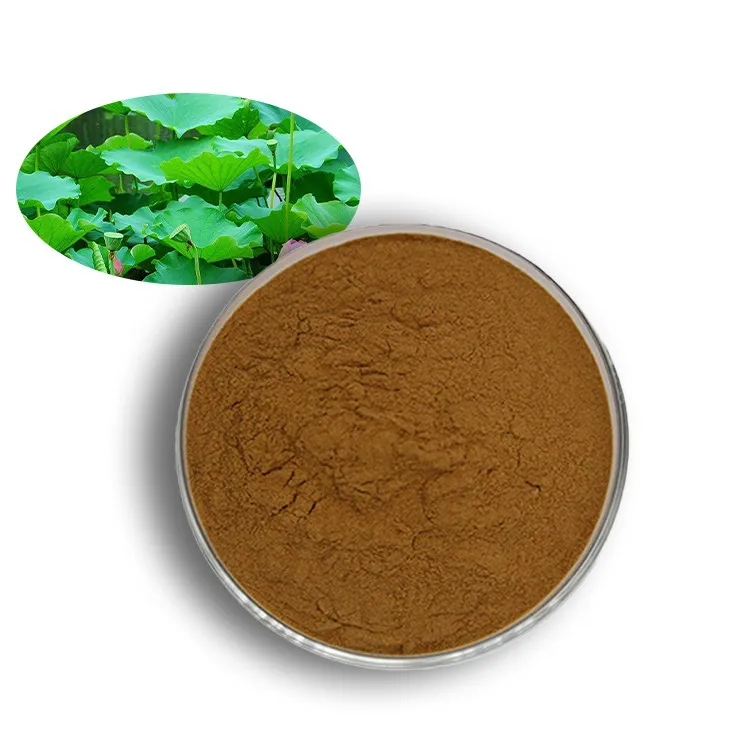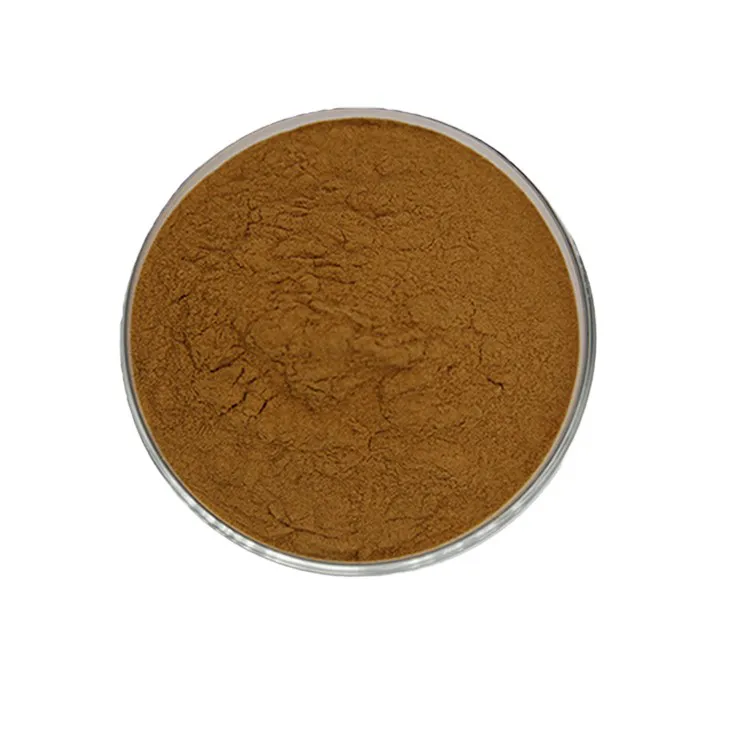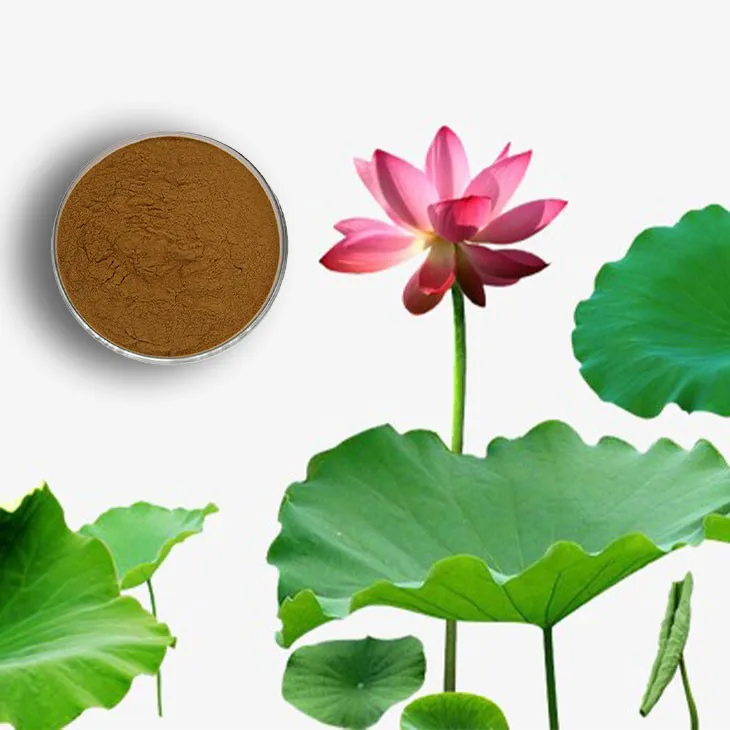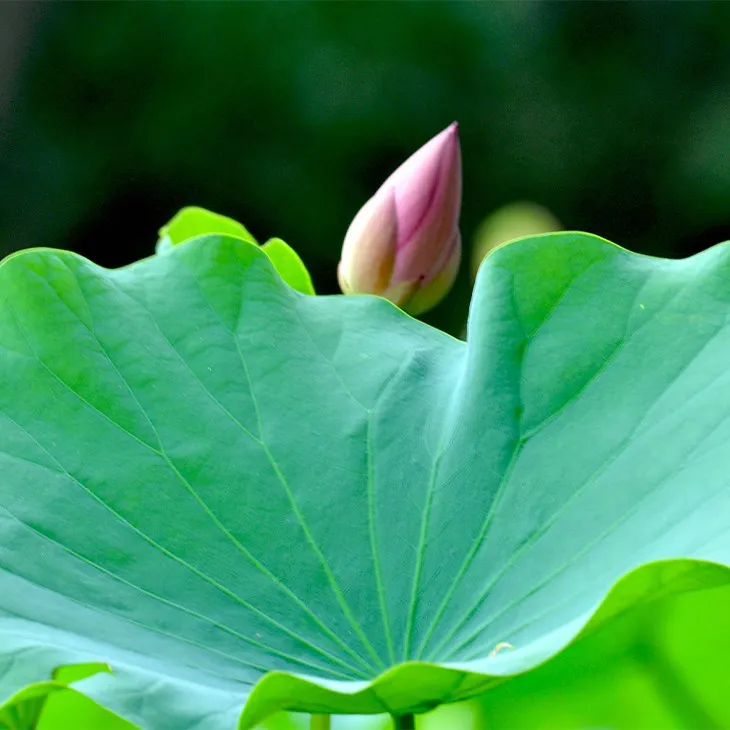- 0086-571-85302990
- sales@greenskybio.com
Exploring the Science: Recent Studies on the Efficacy of Lotus Leaf Extract
2024-07-03

1. Introduction
The lotus plant has long been revered in various cultures for its beauty and symbolic significance. However, in recent years, scientific attention has increasingly turned towards the lotus leaf and its extract. The Lotus leaf extract is now being explored for a wide range of potential applications due to its unique chemical composition. Recent studies have been delving into the many aspects of its efficacy, from health - related properties to its uses in different industries.

2. Chemical Composition of Lotus leaf extract
The efficacy of Lotus leaf extract can be attributed to its rich chemical composition. It contains a variety of bioactive compounds such as alkaloids, flavonoids, and phenolic acids.
2.1 Alkaloids
Alkaloids in lotus leaf extract play important roles. For example, some alkaloids have been shown to have potential biological activities. They may interact with certain receptors in the body, which could be related to its potential health benefits.
2.2 Flavonoids
Flavonoids are another major component. These compounds are known for their antioxidant properties. Flavonoids in lotus leaf extract can scavenge free radicals in the body, which helps in reducing oxidative stress. This antioxidant activity is one of the key factors contributing to its potential health - promoting effects.
2.3 Phenolic Acids
Phenolic acids in the extract also contribute to its overall efficacy. They have been associated with anti - inflammatory effects. By modulating certain inflammatory pathways in the body, phenolic acids in lotus leaf extract may help in treating or preventing inflammatory - related diseases.

3. Potential Health Benefits
The lotus leaf extract has shown promise in several areas of health.
3.1 Antioxidant Properties
As mentioned earlier, the presence of flavonoids and other antioxidant compounds gives lotus leaf extract strong antioxidant capabilities. Oxidative stress is linked to a variety of health problems, including aging, cancer, and cardiovascular diseases. By neutralizing free radicals, the extract can potentially slow down the aging process and reduce the risk of developing these diseases. For instance, in vitro studies have demonstrated that lotus leaf extract can effectively scavenge reactive oxygen species (ROS), which are a major cause of oxidative damage in cells.
3.2 Anti - inflammatory Properties
The anti - inflammatory properties of lotus leaf extract are also significant. Inflammatory responses in the body can lead to chronic diseases such as arthritis and inflammatory bowel disease. Studies have shown that certain components in the extract can inhibit the production of pro - inflammatory cytokines. This means that it may be useful in managing and reducing inflammation in the body. For example, in animal models of inflammation, treatment with lotus leaf extract has shown a reduction in swelling and pain.
3.3 Potential in Diabetes Management
There is growing evidence that lotus leaf extract may play a role in diabetes management. Some studies suggest that it can help regulate blood sugar levels. It may act on the insulin signaling pathway, enhancing the body's sensitivity to insulin. In addition, it may also inhibit the breakdown of carbohydrates in the digestive tract, thereby reducing the rapid increase in blood sugar after a meal. However, more research is needed to fully understand its mechanisms and potential in diabetes treatment.
3.4 Cardiovascular Health
The extract may also have benefits for cardiovascular health. It has been hypothesized that its antioxidant and anti - inflammatory properties can contribute to reducing the risk of heart disease. For example, it may help in preventing the oxidation of low - density lipoprotein (LDL) cholesterol, which is a key step in the development of atherosclerosis. Moreover, some studies have indicated that lotus leaf extract can have a positive effect on blood pressure regulation, although the exact mechanisms are still being investigated.

4. Applications in Medicine
Based on its potential health benefits, lotus leaf extract has several potential applications in medicine.
4.1 Drug Development
The bioactive compounds in lotus leaf extract could serve as leads for new drug development. Pharmaceutical companies are increasingly interested in exploring these natural compounds as they may offer novel mechanisms of action compared to synthetic drugs. For example, the anti - inflammatory compounds in the extract could be developed into new drugs for treating inflammatory diseases. However, extensive research is required to isolate and purify the active compounds, and to study their pharmacokinetics and pharmacodynamics.
4.2 Complementary and Alternative Medicine
Lotus leaf extract is also being explored in the field of complementary and alternative medicine. In traditional medicine systems, the lotus plant has been used for various ailments. Now, with scientific research validating some of its properties, it could be used as a complementary treatment. For instance, it could be used in combination with conventional medications to enhance the overall treatment effect in conditions such as diabetes or cardiovascular diseases. However, it is important to note that proper safety and efficacy studies need to be conducted before it can be widely recommended in this context.

5. Applications in Cosmetics
The properties of lotus leaf extract also make it attractive for use in the cosmetics industry.
5.1 Skin Health
Due to its antioxidant and anti - inflammatory properties, lotus leaf extract can be beneficial for skin health. It can protect the skin from oxidative damage caused by environmental factors such as UV radiation and pollution. In addition, it may help in reducing skin inflammation, which is beneficial for treating skin conditions such as acne and eczema. Cosmetic products containing lotus leaf extract are being developed, such as creams, lotions, and serums, which claim to improve skin complexion and reduce signs of aging.
5.2 Hair Care
Lotus leaf extract may also have applications in hair care. It could potentially improve the health of the scalp by reducing inflammation and oxidative stress. This may lead to healthier hair growth and reduced hair loss. Some hair products are starting to incorporate lotus leaf extract, with claims of strengthening hair follicles and improving hair texture.
6. Research Challenges and Future Directions
Despite the promising findings so far, there are still several challenges in the research on lotus leaf extract.
6.1 Standardization of Extract
One of the major challenges is the standardization of the lotus leaf extract. Different extraction methods can result in extracts with varying compositions and potencies. This makes it difficult to compare the results of different studies. There is a need for standardized extraction protocols to ensure the consistency and reproducibility of research findings. Without standardization, it is also challenging to develop reliable products based on lotus leaf extract in the pharmaceutical and cosmetic industries.
6.2 In - vivo Studies
Most of the current studies on lotus leaf extract are in vitro or in animal models. There is a lack of extensive in - vivo human studies. In - vivo human studies are crucial to accurately determine the safety and efficacy of the extract in humans. For example, while animal studies may show promising results in terms of its potential health benefits, human physiology may be different, and there could be unforeseen side effects or interactions with other medications in humans.
6.3 Understanding the Mechanisms
Although some of the potential health benefits of lotus leaf extract have been identified, the underlying mechanisms are not fully understood. For example, in diabetes management, while it has been shown to affect blood sugar levels, the exact molecular and cellular mechanisms involved are still being investigated. A better understanding of these mechanisms is essential for the development of more effective products based on lotus leaf extract.
In conclusion, lotus leaf extract has shown great potential in various aspects, from health benefits to applications in medicine and cosmetics. However, more research is needed to overcome the current challenges and fully realize its potential. Future research should focus on standardization, in - vivo human studies, and a deeper understanding of the mechanisms underlying its efficacy.
FAQ:
What are the antioxidant properties of lotus leaf extract?
Recent studies have shown that lotus leaf extract contains certain compounds that can scavenge free radicals in the body. These compounds help in preventing oxidative damage to cells, which is associated with various diseases and aging. For example, phenolic compounds present in the extract have been identified as key contributors to its antioxidant activity.
How does lotus leaf extract show anti - inflammatory properties?
The anti - inflammatory properties of lotus leaf extract are thought to be due to its ability to modulate the body's immune response. It may interfere with the production of inflammatory mediators such as cytokines. Some research has indicated that specific components in the extract can suppress the activation of certain pathways involved in the inflammatory process.
What are the applications of lotus leaf extract in medicine?
In medicine, lotus leaf extract has potential uses. For instance, due to its antioxidant and anti - inflammatory properties, it may be explored for the treatment of chronic inflammatory diseases like arthritis. It could also have implications in the prevention of some cardiovascular diseases by reducing oxidative stress and inflammation in blood vessels. However, more in - depth clinical trials are still needed to fully establish its medicinal applications.
How is lotus leaf extract used in cosmetics?
Lotus leaf extract is used in cosmetics mainly for its skin - friendly properties. Its antioxidant activity can help protect the skin from environmental damage, such as from UV radiation and pollution. It may also be beneficial for improving skin complexion and reducing signs of aging, like wrinkles and fine lines, as it can combat oxidative stress at the skin level.
Are there any side effects of using lotus leaf extract?
Currently, there is limited research on the side effects of lotus leaf extract. However, as with any natural product, some individuals may experience allergic reactions. Also, if used in high doses or in combination with certain medications, there could be potential interactions or unforeseen effects. It is always advisable to consult a healthcare professional before using products containing lotus leaf extract.
Related literature
- The Antioxidant Activity of Lotus Leaf Extract: A Comprehensive Review"
- "Anti - Inflammatory Effects of Lotus Leaf Extract: Recent Research Findings"
- "Lotus Leaf Extract in Cosmetics: Applications and Efficacy"
- ▶ Hesperidin
- ▶ citrus bioflavonoids
- ▶ plant extract
- ▶ lycopene
- ▶ Diosmin
- ▶ Grape seed extract
- ▶ Sea buckthorn Juice Powder
- ▶ Beetroot powder
- ▶ Hops Extract
- ▶ Artichoke Extract
- ▶ Reishi mushroom extract
- ▶ Astaxanthin
- ▶ Green Tea Extract
- ▶ Curcumin Extract
- ▶ Horse Chestnut Extract
- ▶ Other Problems
- ▶ Boswellia Serrata Extract
- ▶ Resveratrol Extract
- ▶ Marigold Extract
- ▶ Grape Leaf Extract
- ▶ blog3
-
Ginger Extract
2024-07-03
-
Purple Sweet Potato Extract
2024-07-03
-
Polygonum multiflorum extract
2024-07-03
-
Green coffee bean Extract
2024-07-03
-
Buckthorn bark extract
2024-07-03
-
Chia Seed Powder
2024-07-03
-
Milk Thistle Extract
2024-07-03
-
Jujube Extract
2024-07-03
-
Red Wine Extract
2024-07-03
-
Pomegranate Extract
2024-07-03





















